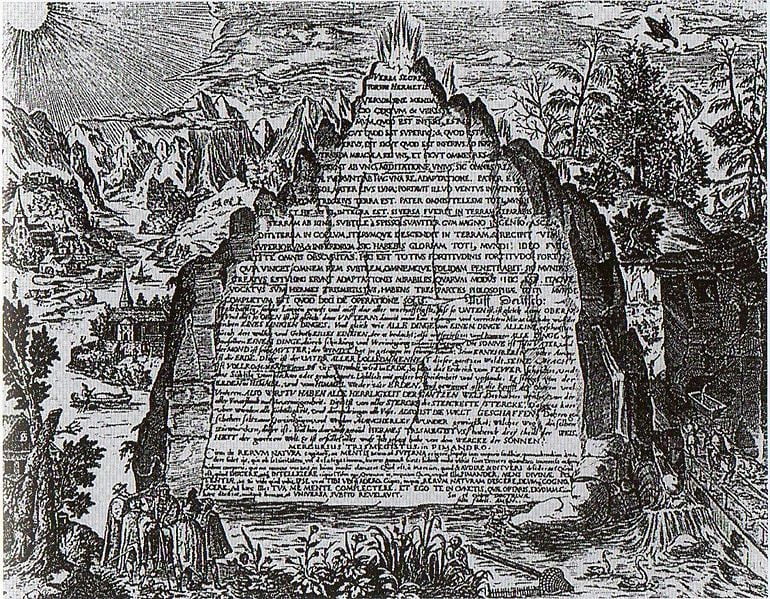
The text of the Emerald Tablet’s first known appearance was in a book written in Arabic between the sixth and eighth centuries, entitled Balanius the Wise on the Causes. The text’s original source is unknown. It is reputed to contain the secret of transmutation, and formed the basis of European alchemy and the Hermetic tradition. (For an example, see The Rosary of the Philosophers, thought to be an illustration of the text below.)
Its author is given (in the text) as “Hermes Trismegistus” (Hermes the Thrice-Greatest), combining the Greek god Hermes and the ancient Egyptian god Thoth.
Translation by Isaac Newton
This translation of the Emerald Tablet was found among his alchemical papers housed at Cambridge University.
Some have proposed that the “separation of earth from fire” refers to intercourse without climax, or separating the body from passion – as a means of harnessing the primal forces of “moon” and “sun” for transformation.
Tis true without lying, certain and most true.
That which is below is like that which is above
and that which is above is like that which is below
to do the miracles of one only thing.And as all things have been and arose from one by the mediation of one:
so all things have their birth from this one thing by adaptation.The Sun is its father,
the moon its mother,
the wind hath carried it in its belly,
the earth is its nurse.
The father of all perfection in the whole world is here.
Its force or power is entire if it be converted into earth.Separate thou the earth from the fire,
the subtle from the gross
sweetly with great industry.
It ascends from the earth to the heaven
and again it descends to the earth
and receives the force of things superior and inferior.By this means you shall have the glory of the whole world
and thereby all obscurity shall fly from you.Its force is above all force,
for it vanquishes every subtle thing and penetrates every solid thing.So was the world created.
From this are and do come admirable adaptations
where of the means is here in this.Hence I am called Hermes Trismegist [sic],
having the three parts of the philosophy of the whole worldThat which I have said of the operation of the Sun is accomplished and ended.
